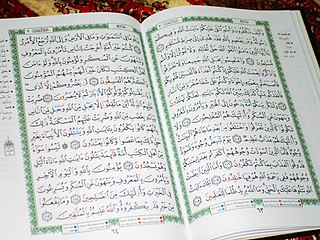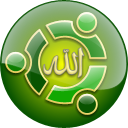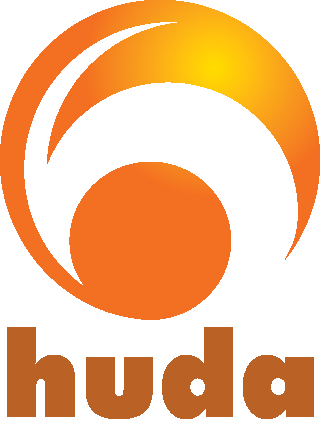
The Quran, also romanized Qur'an or Koran, is the central religious text of Islam, believed by Muslims to be a revelation from God. It is organized in 114 chapters, which consist of verses. In addition to its religious significance, it is widely regarded as the finest work in Arabic literature, and has significantly influenced the Arabic language.
The following list consists of notable concepts that are derived from Islamic and associated cultural traditions, which are expressed as words in Arabic or Persian language. The main purpose of this list is to disambiguate multiple spellings, to make note of spellings no longer in use for these concepts, to define the concept in one or two lines, to make it easy for one to find and pin down specific concepts, and to provide a guide to unique concepts of Islam all in one place.
WWOR EMI Service was a New York City-based American cable television channel that operated as a superstation feed of Secaucus, New Jersey-licensed WWOR-TV. The service was uplinked to satellite from Syracuse, New York, by Eastern Microwave, Inc., which later sold the satellite distribution rights to the Advance Entertainment Corporation subsidiary of Advance Publications, a Syracuse-based company that also owned various print, broadcast and cable television properties.
Barzakh is an Arabic word meaning "obstacle", "hindrance", "separation", or "barrier". In Islam, it denotes a place separating the living from the hereafter or a phase/"stage" between an individual's death and their resurrection in "the Hereafter".It also considered as a place where soul rest until the day of judgement

In the context of the recitation of the Quran, tajwīd is a set of rules for the correct pronunciation of the letters with all their qualities and applying the various traditional methods of recitation (Qira'at). In Arabic, the term tajwīd is derived from the verb جود, meaning enhancement or to make something excellent. Technically, it means giving every letter its right in reciting the Qur'an.
The history of the Quran, the holy book of Islam, is the timeline and origin of the written compilations or manuscripts of the Quran, based on historical findings. It spans several centuries, and forms an important major part of the early history of Islam.
In Islam, Qirāʼah are different linguistic, lexical, phonetic, morphological and syntactical forms permitted with reciting the holy book of Islam, the Quran. Differences between Qiraʼat are slight and include varying rules regarding the prolongation, intonation, and pronunciation of words, but also differences in stops, vowels, consonants, and less frequently entire words. Qiraʼat also refers to the branch of Islamic studies that deals with these modes of recitation.

Yaşar Nuri Öztürk was a Turkish Islamic scholar, university professor of Islamic philosophy, lawyer, columnist and a former member of Turkish parliament. He has been described as a Quranist and has given many conferences on Islamic thought, humanity and human rights in Turkey, the USA, Europe, the Middle East and the Balkans. In 1999, members of a violent extremist group called Great Eastern Islamic Raiders' Front (İBDA-C) confessed that they had planned an assassination attempt that never took place.

Alsumaria News is an independent Iraqi satellite TV network that transmits on Nilesat 102,

The Islamic Institute of Toronto (IIT) is a non-profit Islamic educational institute in Toronto, Canada.
The digital Quran is a text of the Qur'an processed or distributed as an electronic text, or more specifically to an electronic device dedicated to displaying the text of the Qur'an and playing digital recordings of Qur'an readings.

Sheikh Mahmoud Khalil al-Hussary also known as Al-Hussary, was an Egyptian qāriʾ widely acclaimed for his accurate recitation of the Qur'an. Al-Hussary committed the entire Qur'an to memory by age 8 and started reciting at public gatherings by age 12. In 1944, Al-Hussary won Egypt Radio's Qu'ran Recitation competition which had around 200 participants, including veterans like Muhammad Rifat. The quadrumvirate of El Minshawy, Abdul Basit, Mustafa Ismail, and Al-Hussary are generally considered the most important and famous qurrāʾ of modern times to have had an outsized impact on the Islamic world.

Sabily (Arabic: سبيلي, IPA:[sæˈbiːliː], My Way) is a discontinued Linux distribution based on Ubuntu, designed by and for Muslims. Originally named Ubuntu Muslim Edition (presented as UbuntuME), development for Sabily was active from 2007 to 2011.
Ahlebait TV was a Shia Muslim TV channel based in the United Kingdom.

Platforma HD was a Russian operator of satellite TV which broadcasts a package of HD-quality channels over the European territory of Russia. In addition, the package of channels of high-definition was available for retransmission in cable networks.
According to Islamic tradition, the Quran was revealed to the Islamic prophet Muhammad by the angel Gabriel (Jibril) in seven ahruf, translated variously as "styles", "ways", "forms" and "modes". Islamic scholars agree that the ahruf were styles used by the early Muslims to recite the Quran.

Huda TV is a Satellite TV and internet television channel free-to-air, English language, Islamic-focused, offers the message of Islam in English. It was launched in 2005.

Ta'wilat Ahl al-Sunnah or Ta'wilat al-Qur'an, better known as Tafsir al-Maturidi, is a classical Sunni tafsir, written by the Hanafi scholar Abu Mansur al-Maturidi, who was a contemporary of al-Tabari.
Darussalam International Publishing & Distribution is a Saudi-based multilingual international publishing house operates in 35 countries. It's the second-largest publisher of translations of the Islamic scripture (Qur'ān) in the world after King Fahd Complex.
Islamic manuscripts had a variety of functions ranging from Qur'anic recitation to Scientific notation. These manuscripts were produced in many different ways depending on their use and time period. Parchment (vellum) was a common way to produce manuscripts. Manuscript creators eventually transitioned to using paper in later centuries with the diffusion of paper making in the Islamic empire. When Muslims encountered paper in Central Asia, its use and production spread to Iran, Iraq, Syria, Egypt, and North Africa during the 8th century.









